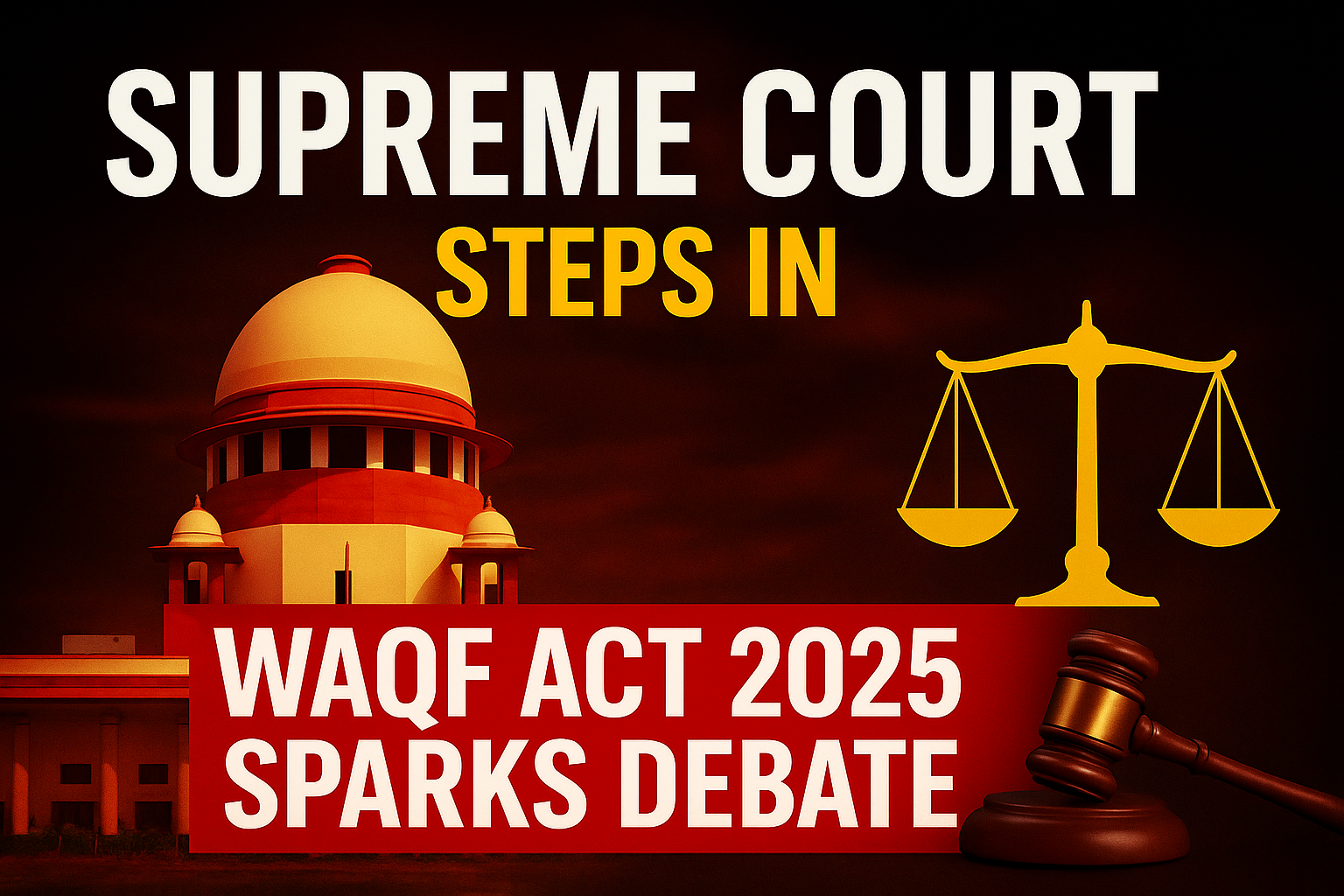Introduction
There are some major changes in the Waqf Amendment Act 2025 which highlighted how the waqf properties are regulated, who may create them, and how the matter of dispute will be resolved. The Supreme Court of India on 14th September,2025 has stayed specified Provisions of the Act as this may lead to arbitrariness.
Background of Waqf Law in India
The Waqf Act,1995 was designed to bring structure to the management of waqf properties by making registration, holding trustees accountable. There are some problems which is seen like misuse of funds, illegal occupation of waqf land etc. to tackle these issues, the Waqf Amendment Act of 2025 was introduced rules such as the Waqf creator is required to follow Islam for at least five years, giving concerned government officers to settle the encroachment disputes, reshaping the composition of waqf boards and abolishing of waqf by user. This amendment can spark challenges in courts.
Key Provisions of Waqf Amendment Act 2025
1. Five-year Islam Practice rule: – A person only who has been practising Muslim Religion for at least five years can create Waqf.
2. Collector’s role in Disputes: – District collector or the other concerned government officials now have the power to decide if land claimed should be encroached.
3. Broad Composition changes: – The law limits how many non- Muslim and Muslim members of the central and state Waqf board would be a part of it.
Supreme Court’s Order
The supreme court strike down some of the provision such as
1. The rule requiring five years of Islamic practice is problematic because there is no clear way to verify who qualifies.
2. Giving collectors to settle property disputes and temporarily remove waqf status land while cases are pending is also controversial as it sidelines the role of court in it.
Other provisions are still in effect such as the rules on registering Waqf properties, restriction on non-Muslims creating Waqf and the member criteria for waqf board are still in effect.
Conclusion
The Supreme Court of India decision to pause some parts of the Waqf Amendment Act,2025 underlined the balance reform with constitutional protections. For the current time the 5 year practice law and the power given to the collector to resolve disputes are on hold while other changes remain active. The real challenges are ahead as we have to see how states will draft their rules making sure that the procedures are fair, fundamental rights are protected and there should not be misuse of waqf rules.
About the Author
Tushar Kumar is a final-year BBA-LLB student at Guru Gobind Singh Indraprastha University. With a strong interest in Intellectual Property Rights, he enjoys exploring how law interacts with innovation and creativity. He’s equally passionate about legal writing, Research and believes in making complex legal ideas easier to understand through clear articles. Tushar continues to deepen his understanding of the law while contributing thoughtful pieces on contemporary legal issues.

